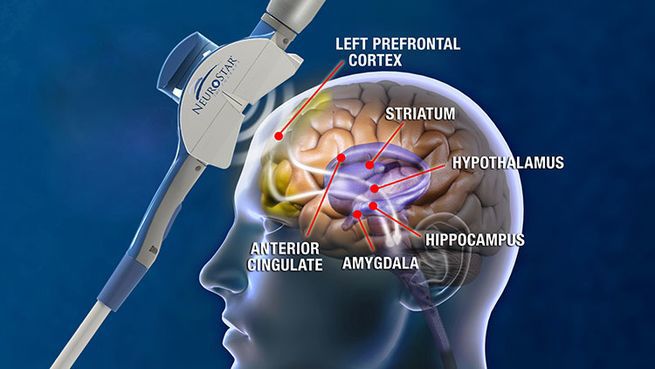There’s a lot of controversy around TMS shock therapy. Some people swear by it, while others think it’s nothing more than quackery. So what is the truth about this treatment? Is it as effective as people say it is? In this blog post, we’ll look at the science behind TMS shock therapy and see what the evidence says about its efficacy.
- Why would someone want such an expensive and strange process done on them anyway?
- What does it do when someone has their brain magnetized by a machine!?
The Transcranial Magnetic Stimulation treatment or TMS for short, is a non-invasive healthcare option that uses magnetic pulses to modify brain activity. This therapy has been FDA approved since 2008 and currently, over 100k people have had their depression treated with it in order to relieve symptoms of various disorders, including major depressive disorder (MDD).
How Does It Work?
Repetitive transcranial magnetic stimulation (rTMS) is an emerging treatment for depression that uses the power of magnets to stimulate nerve cells in your brain. This technology painlessly delivers a small, brief electromagnetic pulse that helps control mood and reduce symptoms like sadness or anger without medication!.
TMS is very different from electroshock therapy or TENS, which are considered psychiatric treatments that use electric shock. TMS uses no anesthesia, and people undergoing the procedure may discuss their thoughts with a therapist throughout the session.
Treatment sessions typically last 30 to 60 minutes once daily for four to six weeks during eight weeks. Some TMS patients receive TMS treatment for more than eight weeks.
In the treatment of depression, magnets may be able to help when other therapies have failed. TMS is not a permanent cure and will likely need repeated sessions to continue its effects on symptoms related to sadness or anxiety levels. However, this sometimes occurs where they’ll never fully recover completely unless given an intervention such as electroshock therapy – but we don’t recommend these types either!
TMS is not a replacement for medications or behavioral therapy but rather an adjunct to these treatments that may help reduce symptoms when used along with them. TMS is a treatment that is recommended by the TMS Therapy Service, which was created as part of a TMS research study. It’s important to note that this organization has not approved not all TMS facilities and may not provide you with safe or effective TMS therapy treatments.
What Does TMS Feel Like?
The success of TMS treatment is painless and there’s no risk for patients who have had an “electrical seizure.” It also doesn’t require anesthesia or special needles, making it much easier on them.
Some TMS patients compare the sensation to that feeling when your foot falls asleep or when you get poked with something sharp briefly. Others describe it as more like a hot poker being pressed against their head or a buzzing sensation. TMS also does not make you feel like electricity is running through your body, which is what happens during electroshock therapy.
Side Effects and Risks to consider
- Mild headaches (most common)
- Lightheadedness
- Scalp pain
- Neck pain
- Tingling
- Facial twitching
- Aleepiness
- Altered cognition during treatment
Who should NOT get TMS treatments?
The TMS procedure is not recommended for patients who have a history of seizures. Those who have a metal plate in their head, or any other metal in and around their head should not have the procedure done. Braces and fillings will not interfere with the treatment.
TMS treatments are not shock therapy- they work through a magnetic field that stimulates nerve cells in the brain. The treatment sessions last around 30-60 minutes, and many people report feeling relief from their depression symptoms immediately following treatment. Some side effects are associated with TMS treatment, but these are typically mild and short-lived. If you’re considering TMS as a potential treatment for your depression, contact us to learn more about how it works and what to expect. We would be happy to help you find the best possible care for managing your depression.


